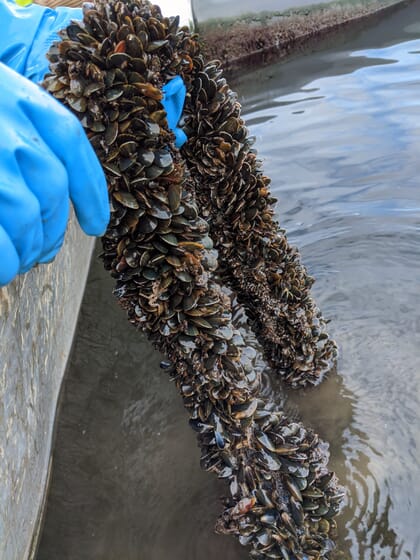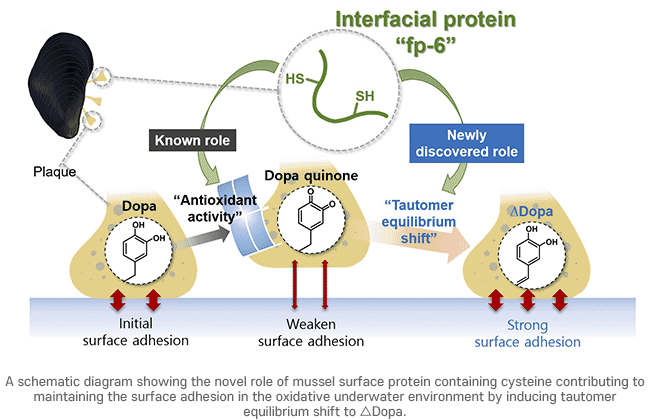
© Judith Browne
Bathroom accessories mounted on tile walls often fall off if not mounted correctly – the moisture in the bathroom weakens the surface adhesion. Conversely, mussels boast amazing adhesion as they stick firmly to rocks, even though they are underwater. Multiple studies are being conducted to utilise these mussel adhesive proteins (MAPs) as an adhesive, its vulnerability to oxidation has made it difficult to fully recreate the underwater strength of MAPs.
Recently, a POSTECH research team led by Professor Hyung Joon Cha, Dr Mincheol Shin and PhD candidate Taehee Yoon (Department of Chemical Engineering) has verified the secret to the strong surface adhesion of mussel adhesive proteins even in an environment that causes oxidation. These findings were recently published in the international journal Langmuir.
MAP is gaining attention as a naturally occurring substance that harmless to the human body. It has tremendous untapped potential as a biomedical material, a bioadhesive or as a drug delivery system. However, there was a limitation. Dopa, a major component of the mussel adhesive protein, is easily oxidised, causing it to weaken and become less effective over time.

However, the research team found a way to reduce the oxidation potential of Dopa. They noted that among the surface proteins of mussels, cysteine-rich proteins are also involved in the oxidation and reduction reactions. In this case, when Dopa was allowed to oxidise into Dopa quinone – a form with weaker adhesion capabilities – the team could add a protein type that contained cysteine. Adding the cysteine protein changed the Dopa quinone into the tautomer △Dopa, a compound that has the same molecular formula, but doesn’t have the same structural or spatial arrangements of the base Dopa molecule. △Dopa has a very strong surface adhesion and can even be stronger than the original MAP Dopa in some cases.
This study is the first study to verify that the fp-6 shifts the tautomer equilibrium of oxidised Dopa to make mussels stick strongly to surfaces even in the oxidative underwater conditions. Applying these findings to the Dopa-based underwater adhesive can increase its surface adhesion.
Professor Hyung Joon Cha explained, “we have verified for the first time that the cysteine-rich surface protein, conventionally known to block oxidation of Dopa, also promotes the change into △Dopa, which helps to maintain the adhesion in mussels even in oxidative underwater environments.”
This study was conducted with the support from the Basic Research Programme of the National Research Foundation of Korea.




